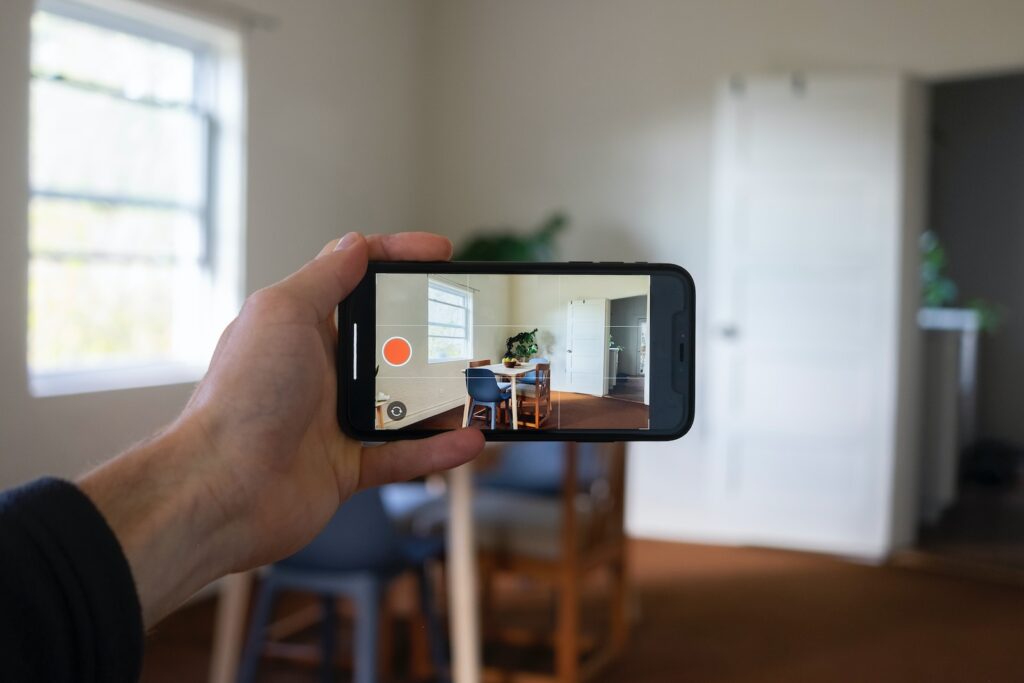The Role of Technology in Real Estate: From Virtual Tours to AI Valuations
Introduction
In today’s world, technology plays an increasingly important role in the real estate industry. From virtual tours that allow potential buyers to explore properties from the comfort of their own homes to AI-driven valuations that give buyers and sellers an accurate picture of a property’s value, technology is revolutionizing the way we buy and sell real estate. AI-driven valuations provide an accurate, up-to-date picture of a property’s worth, and virtual tours allow buyers to explore a property’s features without ever stepping foot inside.
With these advances, technology is ushering in a new era of convenience and accuracy for the real estate industry.
Exploring Virtual Home Tours in Real Estate
In the modern world of real estate, virtual home tours are becoming more and more popular. With the help of advanced technology, real estate agents are able to provide buyers and sellers with a realistic view of the home they are interested in, without having to physically visit the property. This not only saves time, but also allows for a more efficient evaluation of the property.
Virtual home tours also provide buyers and sellers with the opportunity to explore the property in detail. With the help of a real estate agent, they can virtually walk through the property, get a better understanding of the layout, and even take a closer look at the features and amenities. This allows buyers and sellers to make more informed decisions about the property and make sure they are getting the best value for their money.
Overall, virtual home tours are revolutionizing the real estate industry. They provide buyers and sellers with the convenience and flexibility to explore properties from the comfort of their own homes, while also giving real estate agents the opportunity to provide a more efficient and comprehensive service.
The Benefits of Incorporating Technology into Real Estate
Incorporating technology into real estate is a key factor in staying competitive in the industry. By utilizing virtual tours, AI valuations, data analysis, and automation, real estate professionals can maximize their efficiency and increase their success. Virtual tours allow potential buyers to view properties from the comfort of their own home, eliminating the need for in-person visits and saving time and money.
AI valuations, meanwhile, use data analysis to provide an accurate estimate of a property’s value, helping agents and buyers make informed decisions. Automation can also help streamline processes like paperwork and scheduling, freeing up more time for agents to focus on more important tasks. By taking advantage of these technological tools, real estate professionals can stay ahead of the competition and maximize their success.
The Impact of AI on Property Valuations
As the real estate industry continues to embrace the power of technology, artificial intelligence (AI) is playing an increasingly important role in property valuations. By leveraging data-driven AI models, real estate professionals can now make more accurate and reliable valuations of properties. AI-driven valuations are not only faster and more cost-effective than manual appraisals, but they can also provide more accurate insights into the current market value of a property. AI valuations are based on data from a variety of sources, including public records, comparable sales, and market trends.
This data can then be used to create a detailed analysis of the property, including its current market value. By using AI-driven valuations, real estate professionals can make more informed decisions and ensure that properties are accurately valued.
Augmented Reality in Real Estate
As the real estate industry continues to evolve, technology is playing an increasingly important role in the way that we view and value properties. Augmented reality (AR) is one of the most exciting developments in the field, allowing buyers to experience a property in a new and immersive way. Through AR, prospective buyers can take virtual tours of properties from the comfort of their own homes, allowing them to get a much better feel for the space before making a purchase.
In addition to virtual tours, AI valuations are becoming more commonplace as well. AI-driven technology can quickly and accurately assess the value of a property, providing a much more precise and reliable estimate than traditional methods. This technology is quickly becoming a valuable tool for both buyers and sellers, allowing them to make informed decisions about the value of a property.
In summary, augmented reality and AI technology are revolutionizing the way that we view and value real estate. This technology provides buyers with a more comprehensive understanding of a property, while also providing sellers with an accurate and reliable estimate of its value. As the real estate industry continues to evolve, these technologies will become increasingly important.
The Role of the Internet of Things in Real Estate
The internet of things (IoT) is revolutionizing the real estate industry, providing homebuyers with unprecedented access to the information and tools they need to make informed decisions. From virtual tours that allow potential buyers to explore a property without leaving their homes to AI-powered valuations that give real estate agents the ability to accurately price a home, the internet of things is transforming the way people buy and sell real estate.
AI-powered valuations are particularly advantageous for homebuyers, as they provide a reliable estimate of a property’s worth. This helps buyers make more informed decisions and ensures that they don’t overpay for a property. Additionally, virtual tours make it easier for buyers to get a feel for a property before they commit to a purchase, allowing them to make sure it meets their needs without having to physically visit the home.
The internet of things is revolutionizing the real estate industry, giving homebuyers unprecedented access to the tools and information they need to make informed decisions. From AI-powered valuations to virtual tours, the internet of things is making it easier than ever for buyers to find the perfect property.
Conclusion
In conclusion, technology has revolutionized the real estate industry in a variety of ways. From virtual home tours to AI-powered property valuations, technology is helping buyers and sellers make informed decisions and get the best deals. Augmented reality is also helping buyers visualize what a property might look like before they purchase it, and the Internet of Things is making it easier to manage rental properties.
Technology has made real estate more efficient, transparent, and profitable for both buyers and sellers. As technology continues to develop, it is likely that more opportunities will arise for real estate professionals to leverage it to their advantage.
Frequently Asked Questions
Q1: What is the role of technology in real estate?
A1: Technology is becoming an increasingly important factor in the real estate industry. From virtual home tours to AI-driven property valuations, technology is revolutionizing the way real estate transactions are conducted. By leveraging the latest technologies, real estate agents, buyers, and sellers can all benefit from an improved experience.
Q2: What are the benefits of incorporating technology into real estate?
A2: The use of technology in real estate can provide numerous benefits. Virtual home tours allow buyers to get a better view of a property before making a purchase, while AI-driven property valuations can provide more accurate pricing information. Additionally, the use of augmented reality can help buyers visualize how a property could look with certain changes, and the Internet of Things can provide valuable insights into the energy efficiency of a property.
Q3: How can virtual home tours be used in real estate?
A3: Virtual home tours are a great way for buyers to get a better view of a property before they make a purchase. By using virtual reality (VR) technology, buyers can take a virtual tour of a property from anywhere in the world, allowing them to get a better understanding of the layout and features of the property without having to physically visit it.
Q4: What is the impact of AI on property valuations?
A4: AI-driven property valuations can provide more accurate pricing information than traditional methods. By leveraging AI technology, real estate agents can quickly and accurately assess the value of a property based on factors such as location, size, and features. This can help buyers and sellers make more informed decisions when it comes to pricing a property.
Q5: How can augmented reality be used in real estate?
A5: Augmented reality (AR) can be used to provide buyers with a better visualization of how a property could look with certain changes. By using AR technology, buyers can virtually “try on” different furniture, paint colors, and other features, allowing them to get a better idea of how a property could look with certain changes before making a purchase.
Q6: What role does the Internet of Things play in real estate?
A6: The Internet of Things (IoT) can provide valuable insights into the energy efficiency of properties. By connecting devices to the internet, property owners can track their energy usage and identify areas where they could save money. Additionally, IoT technology can be used to monitor rental properties, making it easier for landlords to keep tabs on their investments.
Did You Know?
EarlToms would like to make an offer on your house. We pay cash so you won’t have any appraisals, home inspections, agent commissions, or closing fees typically associated with selling your house to EarlToms. If you want to sell your house, in a hassle-free way, simply fill out the form to get started.


